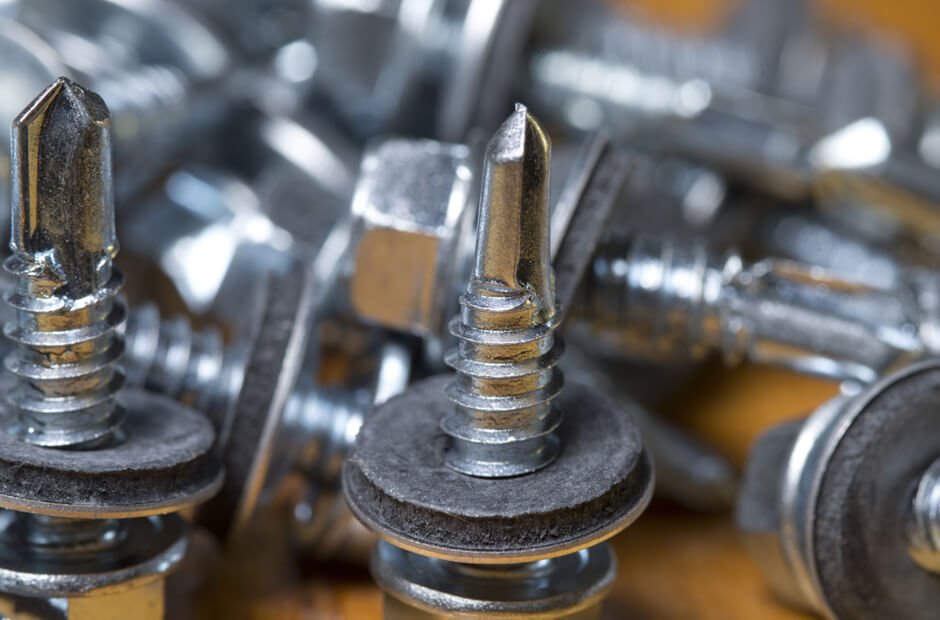Self-tapping screws are a fundamental component in various industries, providing efficient and reliable fastening solutions. Understanding the design and function of these screws is essential for maximizing their performance and ensuring successful applications. This article delves into the intricacies of self-tapping screw design and function, highlighting their advantages and applications across different industries.
What are Self-Tapping Screws?
Self-tapping screws are specialized fasteners designed to create their own mating threads when driven into materials. Unlike traditional screws that require pre-drilled pilot holes, self-tapping screws feature unique thread designs that cut into the material as they are driven, enabling them to securely hold without the need for additional preparation. This characteristic sets them apart from conventional screws and other types of fasteners, making them a versatile solution for a wide range of applications.
Thread Design and Mechanics
The thread design of self-tapping screws plays a crucial role in their functionality. These screws typically feature sharp and deep threads that enable them to effectively cut into various materials. As the screw is driven in, the threads displace the material, creating mating threads that provide strong holding power. This design allows for easier installation, reduces the risk of material damage, and enhances the overall performance of the fastening joint.
Point Types and Applications
Self-tapping screws come in different point types, each tailored to specific applications and materials. Sharp-point screws are commonly used in wood, while drill-point screws are designed for metal applications, and gimlet-point screws are ideal for plastic. The choice of the appropriate point type is crucial as it ensures optimal performance, reduces the risk of material splitting or cracking, and enhances the overall effectiveness of the fastening solution.
Materials and Coatings
The materials used in the manufacturing of self-tapping screws greatly impact their performance and durability. Stainless steel, carbon steel, and brass are commonly employed due to their strength, corrosion resistance, and compatibility with different applications. Additionally, coatings such as zinc plating or galvanized coatings provide added protection against corrosion, extending the lifespan of the screws. The selection of suitable materials and coatings is essential to ensure long-lasting and reliable fastening solutions in various environments.
Considerations for Installation
Proper installation techniques are vital for maximizing the benefits of self-tapping screws. While some self-tapping screws can penetrate materials without the need for pre-drilling, certain materials may require the use of pilot holes or self-drilling screws to ensure efficient installation and prevent damage. It is also crucial to adhere to recommended torque settings and drill speeds to avoid overdriving or stripping the threads, which can compromise the integrity of the joint.
Advantages and Applications
The advantages of self-tapping screws over traditional screws and other fasteners are numerous. Their ability to create their own threads eliminates the need for additional preparation steps, saving time and effort. Self-tapping screws offer excellent holding power and vibration resistance, ensuring robust and secure joints. Their versatility makes them suitable for a wide array of applications, including construction, automotive, electronics, and more.
Innovations and Future Developments
Advancements in self-tapping screw design and function continue to drive improvements in their performance and efficiency. Manufacturers are exploring innovative materials, such as high-strength alloys and composites, to enhance strength and reduce weight. Ongoing research also focuses on optimizing thread geometries, coatings, and surface treatments to further improve corrosion resistance, durability, and ease of installation.
Troubleshooting and Common Issues
To mitigate common issues encountered with self-tapping screws, it is crucial to choose the appropriate screw size for the material thickness. Using screws that are too large can cause splitting or cracking, while using screws that are too small may result in inadequate holding power. It is also important to use the correct installation technique, ensuring the screw is aligned properly and driven in straight to prevent cross-threading or stripping.
Additionally, regular maintenance and inspection of self-tapping screws are essential to identify any signs of wear, corrosion, or loosening. By promptly addressing these issues, potential problems can be avoided, ensuring the longevity and effectiveness of the fastening solution.
Conclusion
Self-tapping screws are versatile and efficient fasteners that have revolutionized the field of fastening solutions. Understanding their design and function is paramount to achieving successful applications across various industries. With their unique thread design, specialized point types, and compatibility with different materials, self-tapping screws provide ease of installation, reliability, and robust holding power.
By selecting the appropriate materials, coatings, and point types, the performance and longevity of self-tapping screws can be optimized. Regular maintenance, proper installation techniques, and troubleshooting solutions further enhance the effectiveness of these fasteners.
As advancements continue to improve self-tapping screw design and function, the potential for even greater efficiency, durability, and versatility in fastening solutions grows. By staying informed about these developments and incorporating best practices, professionals in construction, manufacturing, automotive, and other industries can harness the full potential of self-tapping screws.
In conclusion, self-tapping screws offer a reliable and efficient solution for fastening applications, with their unique design and function unlocking numerous advantages. By embracing their versatility and understanding their intricacies, professionals can achieve optimal results, ensuring secure and durable joints in a wide range of materials and environments.
















